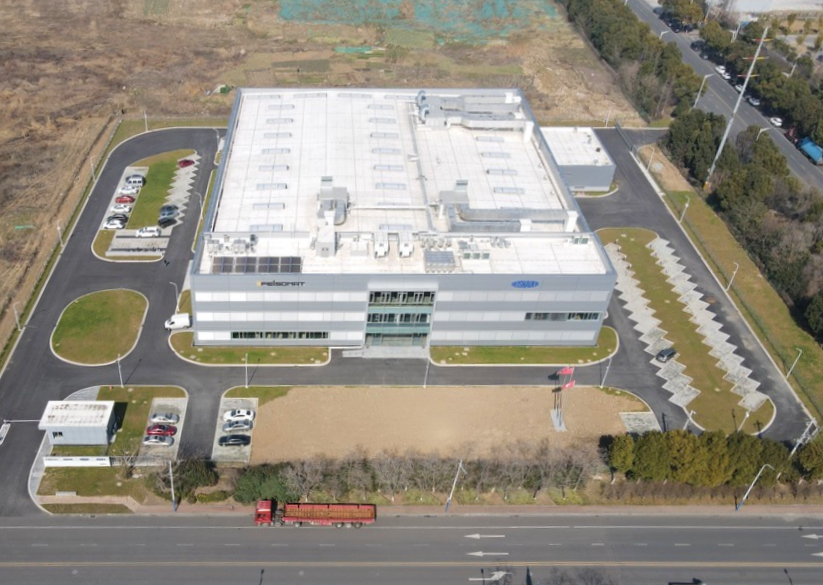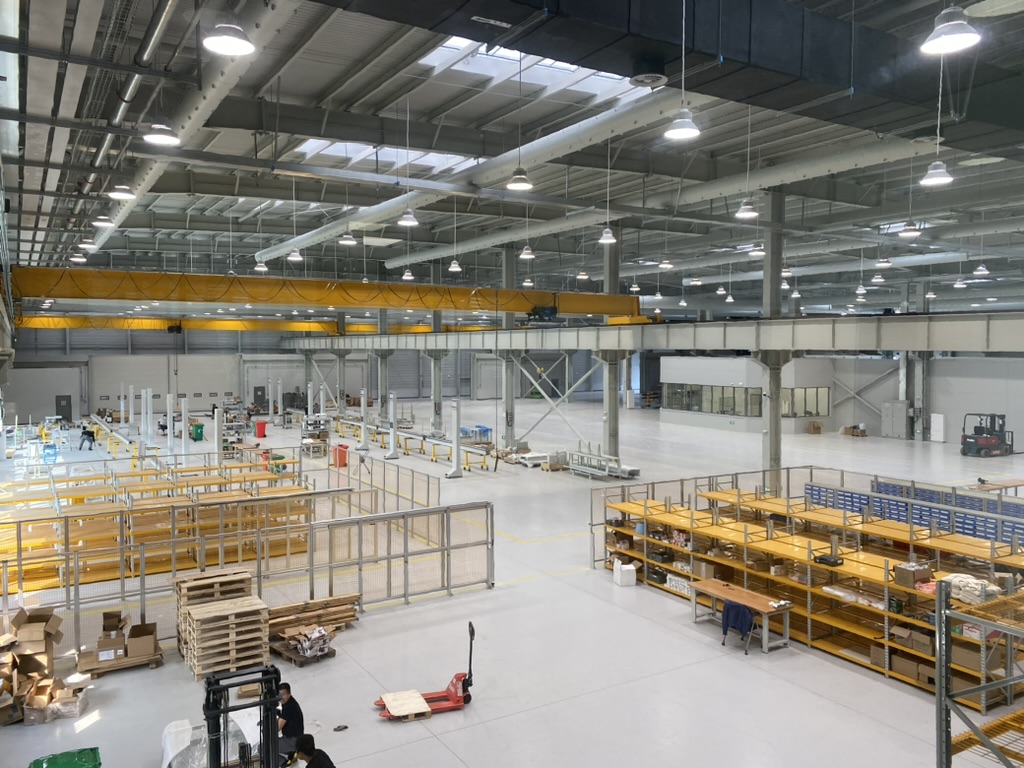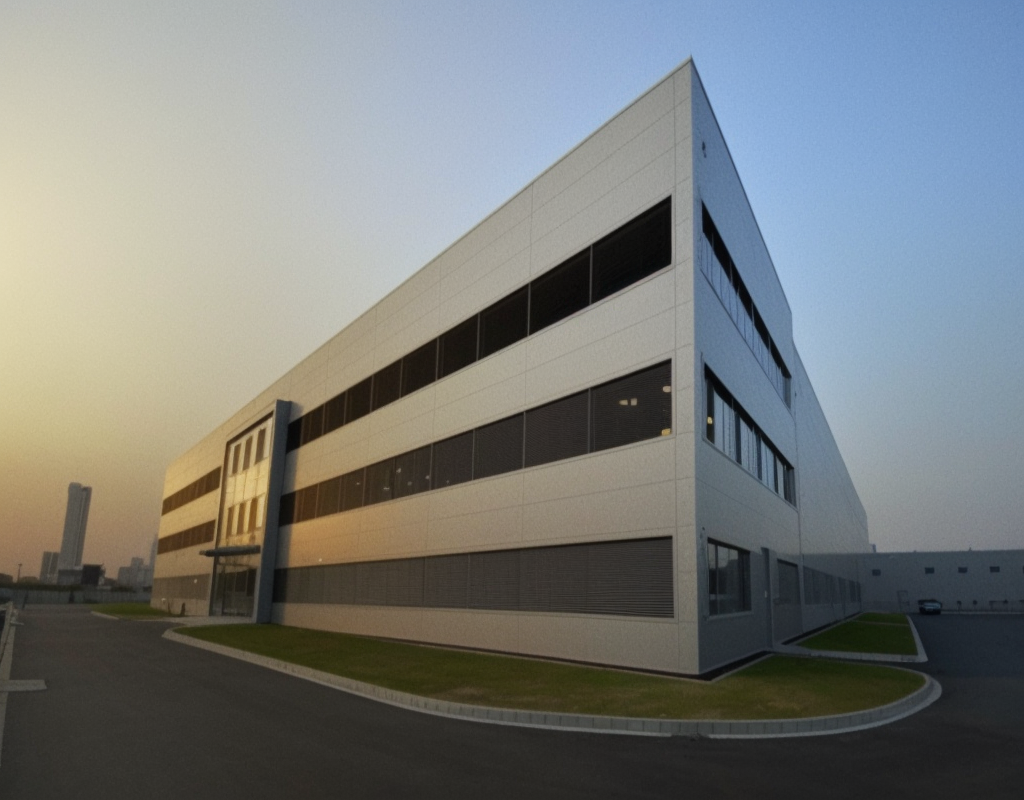
Felsomat (within Reishauer AG) is a global leader in automated transmission gear manufacturing. Using standardized technology modules, it builds integrated, highly efficient manufacturing systems, shaping the future of transmission and engine production. Key products include gears, camshafts, and electric motors.

In 2021, Felsomat obtained a property certificate for their modern and innovative office and factory building in Changzhou, part of the Greater Shanghai Area. This new facility significantly increased production capacity, featuring over 6,000 m² of production space and about 3,000 m² of office space. By establishing this production and knowledge base right near their clients, Felsomat aims to tie closer relationships with their customers.
This factory allowed Felsomat to create job opportunities for up to 400 employees. Additionally, Felsomat’s sister company, Reishauer AG from Wallisellen, Switzerland, utilizes part of the office and workshop space. This shared location is a significant catalyst for joint success, especially since both companies serve mainly the same clients.

RS helped to select an optimal land plot and took part in the negotiation & purchase process. Our approach included defining project requirements, tendering for project and construction management, and setting quality standards. Representing the builder, we conducted regular site visits to ensure budget, schedule, and quality control adherence.
RS had been an integral part of this project from the very beginning, contributing to the deep background analysis, requirements engineering, project management, and quality control.

For years, Felsomat has aimed to be a global manufacturing leader. Through this million-dollar investment, the company is now focusing on the emerging electric vehicle (EVs) market, with the vast majority of manufacturers located in China. By expanding its facilities, Felsomat is reinforcing its vision to become one of the leading suppliers in the EV production industry.
In 2022, almost 60% of EVs worldwide were produced in China. In 2023, production is expected to reach 8 million units or 25% of all cars sold in China. This trend suggests that Chinese-produced EVs are projected to account for around 44% of the world’s total production in the next seven years.
Within defined budget
Within deadlines
The highest built quality met clients’ expectation
Search for an optimal geo-location and suitable land plot for facility construction
Investment negotiation with local government for tax benefits and competitive land prices
Requirements engineering (construction works and processes of a new production facility)
Tendering and negotiation for a local project management and a construction companies
Representation for the builder
Regular site visits during the construction phase
Budgeting
Schedule controlling
Quality control and payment release
Uwe Kling
CEO, Felsomat GmbH & Co. KG (Reishauer AG)
RS greatly assisted us in translating our requirements from Germany into a concrete design. They served as the single point of contact to China for our management and technical departments. They managed the entire ‘New China Build’ project comprehensively and according to plan and budget.
What is an electric vehicle?
An EV is a type of vehicle that is powered by one or more electric motors, using electricity stored in batteries or generated by an onboard fuel cell. EVs produce little to no emissions and are considered a more environmentally friendly alternative to traditional internal combustion engine vehicles.
What is the future of the electric vehicles market?
The EV market is expected to see continued growth due to advancements in technology, government support, expanding infrastructure, and decreasing costs, making electric vehicles more accessible and appealing to consumers.
What is a transmission?
It is a vehicle component that transmits power from the engine to the wheels using gears, enabling speed and direction control by adjusting gear ratios. It plays a crucial role in controlling the speed and torque of a vehicle.
What are the specialties of transmission gear manufacturing?
The manufacturing process includes cutting, shaping, and finishing gears to precise specifications. High precision and durability are essential to ensure smooth and efficient power transfer within the transmission system of cars. Advanced machining technologies and materials are often employed in their manufacturing to meet stringent quality standards and enhance the overall performance of vehicles.